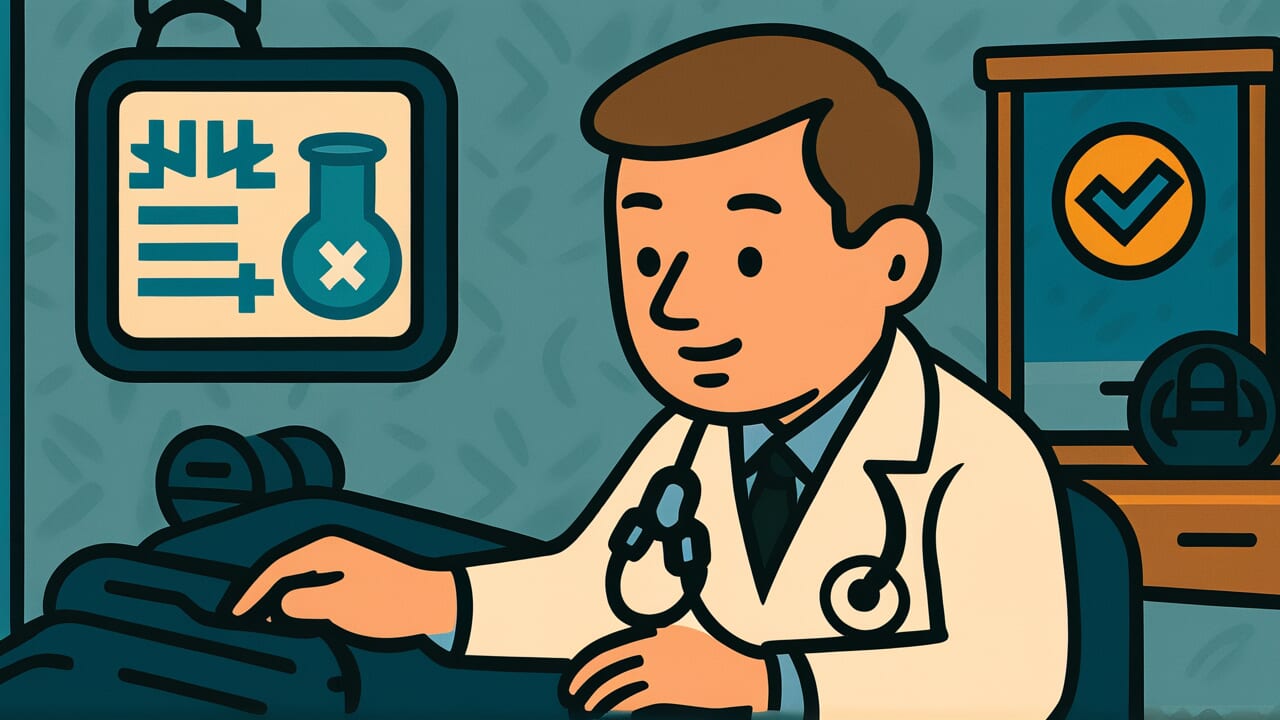How to Read “The best doctor heals the nation”
jōi wa kuni wo iyasu
Meaning of “The best doctor heals the nation”
This proverb means that the most skilled doctor doesn’t just treat individual patients. Instead, they think about the health of the entire nation.
A true master physician doesn’t only address symptoms in front of them. They try to improve the social conditions that create illness in the first place. This broad perspective is what defines a truly great doctor.
People use this expression when talking about the ideal medical professional. It’s also used when emphasizing the importance of solving problems at their root.
When you want to stress looking at the essence of an issue rather than surface-level fixes, this saying fits perfectly.
Today, this proverb appears beyond medical discussions. People quote it when talking about leadership or approaches to social problems.
It teaches a universal lesson: true experts should consider their impact on society as a whole, not just their narrow specialty.
Origin and Etymology
This saying likely comes from the ancient Chinese medical text “Huangdi Neijing” (The Yellow Emperor’s Classic of Medicine). That book ranked doctors into three levels.
The original concept stated: “The superior doctor heals the nation, the average doctor heals people, the inferior doctor heals disease.”
The “superior doctor” wasn’t just someone with excellent medical skills. They had the vision to improve society’s hygiene, diet, and lifestyle habits—the root causes of illness.
The “average doctor” carefully examined each patient in front of them. The “inferior doctor” only treated surface symptoms without deeper thought.
Behind this ranking was a deep understanding. The thinkers recognized that social systems themselves affect people’s health. They valued preventive medicine highly.
This philosophy came to Japan along with traditional Chinese medicine. Edo period medical texts quoted it frequently.
The saying has been passed down to modern times as a fundamental question in medical philosophy: What makes a truly excellent doctor?
Usage Examples
- He’s not just a technician—he thinks about the healthy development of the entire industry. He truly embodies the spirit of “the best doctor heals the nation.”
- When discussing education reform, we shouldn’t focus only on individual school problems. We should review society’s entire educational environment from the perspective of “the best doctor heals the nation.”
Universal Wisdom
“The best doctor heals the nation” has been repeated for centuries. This is because it reveals a deep truth about the relationship between parts and wholes in human society.
When we’re chased by immediate problems, our vision naturally narrows. If we feel pain, we seek painkillers. If symptoms appear, we try to suppress them. This is a natural human response.
But to truly solve problems, we must look at root causes. Why did that pain arise? Why did those symptoms appear? We need to ask these deeper questions.
This truth applies beyond medicine to every field. Corporate problems, educational challenges, environmental crises—none can be solved with surface-level responses alone.
Truly excellent leaders and experts understand individual cases. But they also grasp and can improve the entire system surrounding those cases.
Humans have two desires: “I want relief right now” and “I want fundamental improvement.” The first is immediately attractive with quick results. But the second brings sustainable happiness.
Our ancestors understood this conflict. They realized that true solutions come from perspectives that survey the whole picture.
This wisdom holds even greater meaning in our increasingly complex modern society.
When AI Hears This
Systems science has discovered that “effectiveness can differ 100-fold depending on where you intervene.” Imagine carrying water in a leaking bucket.
You could keep adding water frantically. Or you could plug the hole. The second approach is overwhelmingly more efficient. This is the concept of leverage points.
What’s interesting about this proverb is how it frames medicine as three levels of system intervention.
The inferior doctor treats sick people—”responding after problems occur.” The average doctor prevents illness before it happens—”stopping problems from arising.”
The superior doctor improves the nation’s entire structure—”creating systems where problems rarely emerge in the first place.”
The key here is non-linear effectiveness. Consider infectious disease control as an example.
Treating sick patients might cost $10,000 per person. Vaccination might cost $100 per person. But building water and sewage infrastructure creates an environment where infectious diseases don’t spread for decades.
The initial investment is large. But the per-person cost drops to just a few dollars over time.
Systems thinking says the most effective intervention point is “changing the system’s structure itself.” This ranks even higher than “changing rules or incentives.”
This proverb intuitively grasped that essence over 2,000 years ago.
Lessons for Today
This proverb teaches modern people the importance of “raising your perspective.” We’re all chased by daily tasks and problems.
But sometimes, step back. Think about what your work means in the larger picture.
If you’re a student, don’t just focus on raising one subject’s grade. Consider where your overall learning is heading.
If you’re working, don’t just complete tasks in front of you. Be conscious of how they contribute to your organization and society.
This shift in perspective gives your actions depth and direction.
What matters is having eyes that see both parts and wholes. Pay attention to details while never losing sight of the big picture.
The flexibility to move between these two viewpoints is the power modern society demands.
Deepen your expertise while simultaneously broadening your perspective. Balancing both becomes the driving force for your own growth.
It also creates positive influence on the people around you.



Comments